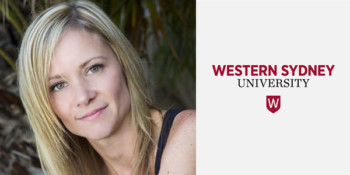Chantal Roberts was a participant in the 2021 Virtual Journalism Professional Practicum. Chantal is studying a Bachelor of Communications at Western Sydney University. She received a $3,000 New Colombo Plan Mobility Grant to support her participation in this program.
Q: Why did you decide to undertake the ACICIS program?
When I first heard of the opportunity, I was really excited about the prospect of gaining international experience. It seemed like an innovative program given we are unable to travel at the moment and I really felt as though this would be a way to get some valuable experience that not many other people currently have the opportunity to benefit from.
Q: Did you receive a New Colombo Plan Mobility Grant? Do you think the NCP is an important initiative?
I am so grateful to have received a New Colombo Plan Mobility grant. Without it, I simply would not have had the means to undertake the program.
Q: What did you find to be the more rewarding part of this virtual program?
The most rewarding part of the program for me was the incredible amount I learned about Indonesia. I didn’t think it was possible to learn as much as I did without actually being in the country but the way the program was run meant that we had such a full experience – from language lessons and cultural seminars to the additional things our Academic Program Officer and Program Assistant did to involve us in every day Indonesian life (such as sending us photos and videos of Jakarta and Bali).
Q: What did you find to be the most challenging about your experience on this virtual program?
The Zoom fatigue was very real!
Q: What organisation did you intern with?
I was interning with Amnesty International Indonesia’s media team. I assisted with research as well as creating an initial draft for an op-ed and an online magazine article. I also had the opportunity to organise and run an online focus group. I was in constant contact with my mentor – this open line of communication was invaluable. I was also lucky enough to learn an incredible amount about human rights issues as a by-product of my placement. I truly think I hit the placement jackpot!
Q: How have you found the work culture (albeit online) of your host organisation? How is it different to work experience in Australia?
I was actually happy to find that it wasn’t as different as I was led to believe it would be. I work in a very casual environment in Australia so I found that it was a little more formal than I am used to but it was still very relaxed, extremely respectful and the people I worked with were so welcoming and friendly. There is something refreshing about realising all the ways in which we are the same rather than concentrating on our differences.
Q: What are the main skills you have learnt during your virtual internship?
Apart from acquiring new language skills, I learned how to conduct journalism in an international setting and witness the ways in which it is done differently to Australia. By being placed in a media team I learned that I have many more job options than I initially realised as I was given the opportunity to discover that my skills can be utilised in many more diverse ways than I ever imagined.
Q: How will the virtual internship benefit or influence your career?
Given that it was all conducted via Zoom, I’m hoping it will show I am able to work really well independently. I would like to work outside of Australia so I think this internship will demonstrate that I am able to adapt to different laws and ways of conducting business as well as learning and adjusting to a different culture.
Q: Why it is important for Australians to learn more about Indonesia and vice a versa?
Put simply, we need to learn more about each other because we are neighbours – Indonesia has such a rich and varied history that I don’t think many Australians know about. Learning about our neighbour will open both countries up to so many wonderful opportunities to learn, grow and help each other. I think it is easy for Australians to think of Indonesia as just a tourist destination (Bali in particular) or a country with many human rights issues however there is so much we can learn from our Indonesian neighbours if we remain open minded.
Q: Would you recommend this virtual program to your friends?
Definitely. It’s not an absolute replacement for an in-country experience but it is very close to it so I hope it can continue to be offered in this virtual format after travel resumes because I believe it will open doors for people who are unable to travel for lengthy periods of time.


